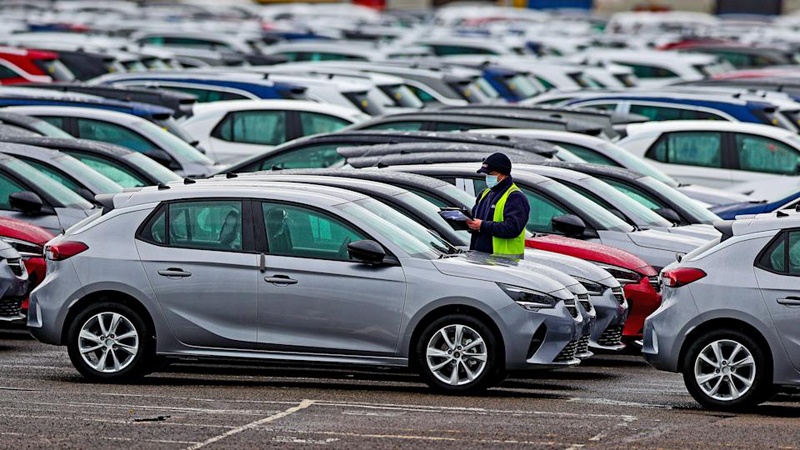 LONDON: Britain’s economic recovery from pandemic fallout slowed sharply in the third quarter as global supply disruptions hurt businesses. - AFP
LONDON: Britain’s economic recovery from pandemic fallout slowed sharply in the third quarter as global supply disruptions hurt businesses. - AFPLONDON: Britain's economic recovery from pandemic fallout slowed sharply in the third quarter as global supply disruptions hurt businesses, official data showed yesterday. Gross domestic product grew 1.3 percent in the July-September period, down from 5.5 percent in the second quarter, the Office for National Statistics (ONS) said in a statement.
"As the world reopens we know that there are still challenges to overcome," finance minister Rishi Sunak said in response. Despite the sharp growth slowdown in the third quarter, the chancellor of the exchequer added that the UK was "forecast to have the fastest growth in the G7 this year". The ONS added that the UK economy was still 2.1 percent below its level before the outbreak of the coronavirus pandemic at the end of 2019.
The economy contracted 0.2 percent in July before rebounding in August and September, it said. ONS chief economist Grant Fitzner said that in the third quarter "business investment remained well down on pre-pandemic levels". He added that the trade deficit widened as exports of goods to countries outside the European Union fell and imports, particularly of fuel, increased.
'Significant headwinds'
As countries reopen from pandemic lockdowns, companies are struggling to meet demand for goods and services, sending inflation soaring. "A combination of rising COVID cases and shortages of raw materials, components and labor came together to present significant headwinds to growth," Alpesh Paleja, lead economist at Britain's main business lobby group the CBI said after yesterday's data. "It's encouraging that the economy maintained some momentum in September but there's no denying that this rounded off a tough quarter for businesses, with supply constraints biting hard," he added.
The car industry in particular is under severe pressure owing to a shortage of computer chips needed in all types of vehicles. Hospitality is also struggling to find staff with restaurants and bars having lost workers to other industries during UK lockdowns and as EU nationals returned home in the wake of Brexit.
'Much tougher phase'
The Bank of England (BoE) last week forecast that the UK economy would grow 7.0 percent this year after the nation emerged from lockdowns. However it estimates that growth would then slow to 5.0 percent next year. "With the easy gains from reopening the economy exhausted and policy support being withdrawn, the recovery has entered a much tougher phase," noted Martin Beck, senior economic advisor to financial researchers the EY ITEM Club.
"In addition, the situation has been made harder by the escalation of supply chain disruption and the increases in inflation, which will eat into household spending power." Britain's departure from the European Union is meanwhile set to hit the country's economic growth more than the coronavirus pandemic in the long term, the head of a UK government body advising on the financial outlook, said last week. Britain formally departed the EU at the start of the year when the country was in a strict lockdown. As the UK economy last year headed toward its worst contraction in more than three centuries, the government of Prime Minister Boris Johnson together with the BoE pumped hundreds of billions of pounds into the economy.
But the state's costly furlough scheme that kept millions of private sector workers in their jobs ended recently, risking a spike in unemployment over the coming months according to economists. The BoE has however kept its key interest rate at a record-low 0.1 percent and maintained its huge cash stimulus package. This contrasts with other central banks around the world, including the US Federal Reserve, that are tightening monetary policy as growth recovers and inflation soars. - AFP










